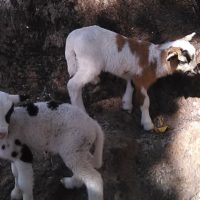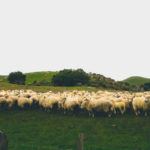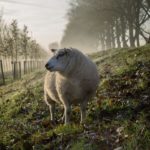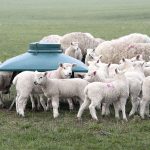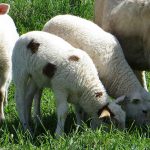Several feed firms supply “complete” sheep and/or lamb feeds. These are textured (sweet) or processed (pelleted) feed products which are balanced for the wants of livestock of a explicit species, age, and production category. Complete feeds should not be mixed with different grain, as a result of this can “unbalance” them. For example, adding corn to an entire feed will alter the Ca:P ratio and could end in urinary calculi.
Pelleted rations have a bonus in that the animals cannot kind feed ingredients. Sorting can be a downside when animals are on self-feeders and allowed to eat all they need. Pelleted diets are ideal for free choice self-feeding. Complete feeds come in fifty or a hundred lb. sacks and have a tendency to be more expensive than home-created concentrate rations. For tiny producers, inexperienced shepherds, and 4-H members, commercial feeds are typically recommended.
Pelleted Supplements
To help management feed prices, producers will mix their own simple rations by combining varied feed ingredients, such as corn, soybean meal, and minerals. It’s possible to urge business pelleted supplements that contain vitamins and minerals, and high levels of protein (thirty four-forty%). These supplements will easily be combined with whole grains or by-product feeds to create a balanced concentrate ration.
For example, combining four lbs. of corn with one lb. of a 36% protein pellet would end in a sixteenpercent protein ration that includes vitamins and minerals, making it a “complete” ration. This ration would be appropriate for feeding lactating ewes or finishing feeder lambs.
By-product feeds
There are varied by-merchandise that may be fed to sheep and lambs. Most by-products are offered as a result of processing a ancient feed ingredient to come up with another product. For example, corn gluten meal is a by-product of the corn milling method. Soybean hulls are a byproduct of soybean processing for oil and meal.
Wheat middlings are a by-product of the flour milling business. Beet Pulp is that the vegetable matter, that remains once sugar is extracted from sliced sugar beets. Alternative by-product feeds are by-merchandise of the food and beverage industries. For example, brewers grains may be a by-product of the brewing industry. Citrus Pulp is that the dried residue of peel, pulp and seeds of oranges, grapefruit and alternative citrus fruit.
By-product feeds can typically be economical sources of nutrients for sheep; however, they have be analyzed to determine their nutrient content. The high moisture content of some by-product feeds may limit consumption of the diet ensuing in poor animal performance. High water content could additionally build by-product feeds tough to transport and store. By-product feeds are usually incorporated into least price rations or TMR’s (total mixed rations).
By-merchandise
| Feedstuff | Percent CP | Percent TDN |
| Alfalfa pellets | 20 | 61 |
| Beet pulp (dry) | 11 | 75 |
| Citrus pulp (dry) | 7 | 79 |
| Corn gluten feed | 22 | 80 |
| Corn stalks | 5 | 59 |
| Distiller’s grains (dry) | 29 | 90 |
| Ear corn | 9 | 82 |
| Grain screenings | 14 | 65 |
| Kelp (dry) | 7 | 32 |
| Molasses (cane, dry) | 9 | 74 |
| Poultry litter (dry) | 25 | 64 |
| Soybean hulls | 12 | 77 |
| Wheat middlings | 19 | 82 |
| Whole cottonseed | 23 | 95 |

